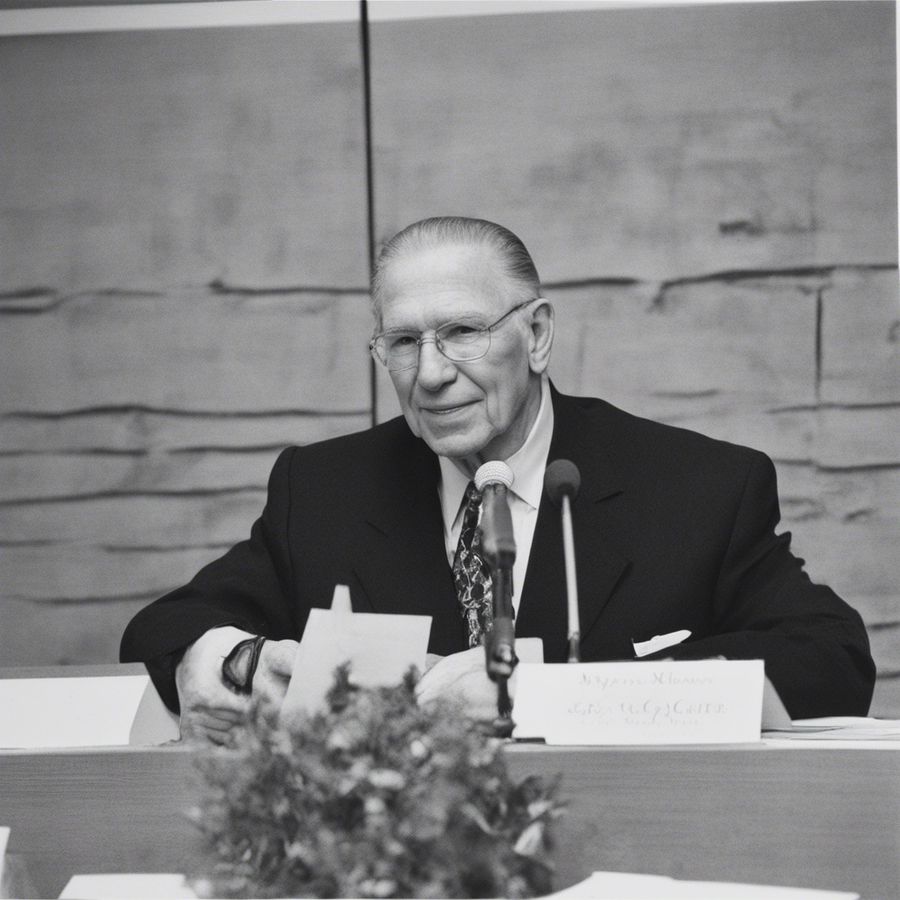Chuck Missler, a renowned figure in the world of Christian evangelism and Biblical studies, has always been a subject of interest for many. His intellectual prowess, combined with his deep understanding of the Bible, has led many to question, "What is Chuck Missler's IQ?" While it's challenging to ascertain an individual's exact IQ without proper testing, we can make educated guesses based on their accomplishments, abilities, and the complexity of their work.
Chuck Missler's IQ: 136
Understanding Intelligence Quotient (IQ)
Before delving into the specifics of Chuck Missler's IQ, it's essential to understand what an IQ score represents. IQ, or Intelligence Quotient, is a measure of a person's cognitive abilities in comparison to the general population. It's designed to assess the mental agility of an individual.
Typically, an average IQ score ranges from 85 to 115. Scores above 130 are considered highly intelligent, while those above 145 fall into the genius or near-genius category. However, it's important to note that IQ is just one aspect of intelligence and doesn't account for factors like emotional intelligence, creativity, or practical skills.
Chuck Missler's Intellectual Accomplishments
Chuck Missler had a remarkable career that spanned various fields, including the military, corporate sector, and Christian evangelism. His intellectual accomplishments provide some insight into his potential IQ.
Academic Achievements
Missler graduated from the U.S. Naval Academy before joining the Air Force. He later earned a Master's degree in Engineering from UCLA, indicating a high level of intellectual capability and discipline.
His academic achievements suggest a strong grasp of complex subjects, which is often associated with a high IQ. However, it's important to remember that academic success doesn't always correlate directly with IQ.
Professional Success
In the corporate world, Missler held executive positions in several Fortune 500 companies. He was the CEO of Western Digital, a leading technology company. His success in these roles suggests strong strategic thinking and problem-solving skills, traits often associated with high IQ individuals.
However, like academic achievements, professional success is influenced by various factors, including interpersonal skills and work ethic, which are not measured by IQ tests.
Chuck Missler's Biblical Studies
Perhaps the most significant testament to Missler's intellectual prowess is his extensive work in Biblical studies. He founded the Koinonia House, a ministry dedicated to creating in-depth Bible studies. His teachings, which often delve into complex theological and scientific concepts, reflect a high degree of intellectual capacity.
Integration of Science and Theology
Missler was known for his ability to integrate scientific concepts with Biblical teachings. This unique approach required a deep understanding of both fields, suggesting a high level of cognitive ability.
His ability to explain complex ideas in an accessible way also indicates strong communication skills, a trait often associated with high IQ individuals.
Creation of In-Depth Bible Studies
Missler's Bible studies are known for their depth and complexity. He often explored intricate details of Biblical texts and their historical and cultural contexts, demonstrating a high level of analytical thinking.
While creating these studies, Missler likely drew on a range of cognitive abilities, including memory, comprehension, and problem-solving skills, which are all components of IQ.
Conclusion
While we can't definitively answer the question, "What is Chuck Missler's IQ?" his accomplishments suggest a high level of intellectual ability. His academic and professional success, combined with his in-depth Biblical studies, indicate a strong capacity for complex thinking and problem-solving.
However, it's important to remember that IQ is just one measure of intelligence. Missler's impact on Christian evangelism and Biblical studies reflects a broad range of skills and abilities, many of which are not captured by traditional IQ tests.

